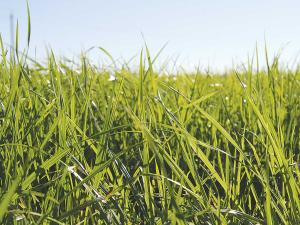Editorial: RMA reforms uproar
OPINION: The euphoria over the Government’s two new bills to replace the broken Resource Management Act is over.
 Levies are collected from the following Commons: Nui, Moata, Manawa, Tama, Ruanui, Huia and Pawera, as well as uncertified ryegrass, red and white clover.
Levies are collected from the following Commons: Nui, Moata, Manawa, Tama, Ruanui, Huia and Pawera, as well as uncertified ryegrass, red and white clover.
The Non-Proprietary and Uncertified Herbage Seeds Levy order will continue for another six years.
Growers overwhelmingly supported the levy.
"In fact, from 82% in favour at the last levy vote in 2014, support shown during the vote last November had risen to 91%," says Federated Farmers Herbage Seedgrowers Subsection chairperson, Hugh Wigley.
Agriculture Minister Damien O’Connor and the rest of Cabinet have approved continuation of the levy, and it will be gazetted this week.
"Grasses and clovers are vital to our sector but contracts for growing from proprietary seed are not always available and are more expensive. This levy safeguards supply of non-proprietary and uncertified seeds and provides different options to our farmers," says Wigley.
The Commodity Levies (Non-proprietary and Uncertified Seeds) Order, known as the Commons, was first mandated in 1997 when the responsibility for maintaining these cultivars was transferred to industry from Government.
Levies are collected from the following Commons: Nui, Moata, Manawa, Tama, Ruanui, Huia and Pawera, as well as uncertified ryegrass, red and white clover.
For the Commons to continue to be publicly available, live nucleus and pre-nucleus seed of each of the Commons must be maintained to make breeders and basic seed available to growers.
It costs an estimated $180,000 for Grasslanz Technology to ensure this base material is available to growers.
About 15 to 20% of this material comes from the commercial sale of breeders and basic seed, while the remainder comes from the levy.
The levy is collected on behalf of Federated Farmers by all seed testing stations on the first purity and germination test. It is set at a fixed per kg cost on the projected harvest of each of the Commons and the estimated kg price received by the grower. The maximum levy rate is 5%, although it is typically around 1.5 to 2%.
Global trade has been thrown into another bout of uncertainty following the overnight ruling by US Supreme Court, striking down President Donald Trump's decision to impose additional tariffs on trading partners.
Controls on the movement of fruit and vegetables in the Auckland suburb of Mt Roskill have been lifted.
Fonterra farmer shareholders and unit holders are in line for another payment in April.
Farmers are being encouraged to take a closer look at the refrigerants running inside their on-farm systems, as international and domestic pressure continues to build on high global warming potential (GWP) 400-series refrigerants.
As expected, Fonterra has lifted its 2025-26 forecast farmgate milk price mid-point to $9.50/kgMS.
Bovonic says a return on investment study has found its automated mastitis detection technology, QuadSense, is delivering financial, labour, and animal-health benefits on New Zealand dairy farms worth an estimated $29,547 per season.

OPINION: Here w go: the election date is set for November 7 and the politicians are out of the gate…
OPINION: ECan data was released a few days ago showing Canterbury farmers have made “giant strides on environmental performance”.